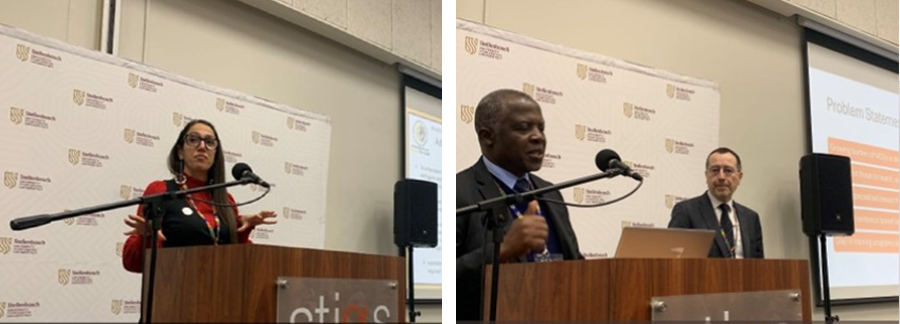Sii Spearheads Africa-Europe Partnerships
Published: 8 October 2024
School of Infection & Immunity scientists Professor Lilach Sheiner and Professor Pasquale Maffia recently attended the Africa-Europe Clusters of Research Excellence Conference hosted by Stellenbosch University in South Africa.

School of Infection & Immunity scientists Professor Lilach Sheiner and Professor Pasquale Maffia recently attended the Africa-Europe Clusters of Research Excellence Conference hosted by Stellenbosch University in South Africa.
Established by the African Research Universities Alliance (ARUA) and the Guild of European Research-Intensive Universities (The Guild), the clusters bring together distinguished researchers across both continents to address the inequity that has characterised research in relation to Africa, to the detriment of global science.
As Directors of the University of Glasgow Clusters of Research Excellence (CoRE) initiatives, titled Advanced Infectious Diseases and Non-Communicable Diseases and Multimorbidity, professors Sheiner and Maffia updated the conference on the partners' progress.
The clusters help ensure that a common research agenda is at the heart of the African Union’s 2063 strategy, which envisages Africa’s transformation to a knowledge society.
They also strengthen the capacity of research and innovation to make a major contribution to each priority of the European Union’s Global Gateway.
These sustained partnerships aim to transform the nature of collaborative research and bring about positive, long-lasting change to common societal challenges.
Professor Sheiner said: “It has been eye-opening and humbling to be exposed to the excellent work of the CoREs, and the conference provided an excellent opportunity to form links between CoREs to achieve mutual goals.”
Professor Maffia added: "I am proud to be part of such a groundbreaking initiative that not only advances scientific collaboration but also ensures that research efforts are more equitable and inclusive.
"By fostering deep, sustained partnerships between Africa and Europe, we aim to address global health challenges, ensuring that our collaborative efforts lead to innovative solutions that improve health outcomes and tackle the growing burden of non-communicable diseases across both continents.”
First published: 8 October 2024

